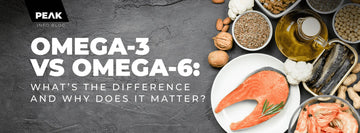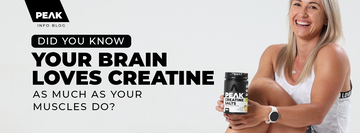Omega-3 and Omega-6 fatty acids are essential polyunsaturated fats that the human body cannot produce on its own. This means they must be obtained through diet or supplements to support overall health.
Omega-3 Fatty Acids: Anti-inflammatory powerhouses
There are three primary types of Omega-3s. Alpha-linolenic acid (ALA) is found in plant-based sources such as flaxseeds, chia seeds, and walnuts. Eicosapentaenoic acid (EPA) and docosahexaenoic acid (DHA) are found in fatty fish like salmon, sardines, and mackerel.
Omega-3s are known for their powerful anti-inflammatory properties. They help reduce inflammation, support heart and brain health, and improve cognitive function. Research also suggests that Omega-3s may lower the risk of depression and anxiety, while promoting better eye health.
Omega-6 Fatty Acids: Essential but easy to overdo
Omega-6 fatty acids are commonly found in vegetable oils such as corn, soybean, and sunflower oil. These fats play important roles in hormone production, maintaining cell structure, and supporting the immune response.
However, consuming too much Omega-6—especially in the absence of sufficient Omega-3—can lead to increased inflammation. This imbalance has been linked to a higher risk of chronic conditions such as heart disease, arthritis, obesity, and type 2 diabetes.
Why the Omega-6 to Omega-3 ratio matters
Historically, human diets maintained a balanced Omega-6 to Omega-3 ratio of around 2:1. In contrast, the modern Western diet often exceeds a ratio of 20:1, heavily favoring Omega-6. This significant imbalance contributes to chronic inflammation and an increased risk of disease.
How to rebalance your omega intake
To improve your Omega balance, it’s important to increase your intake of Omega-3s while reducing excess Omega-6s. You can boost Omega-3 levels by eating fatty fish two to three times per week, incorporating flaxseeds, chia seeds, and walnuts into your meals, or taking a high-quality Omega-3 supplement if needed.
At the same time, try to cut back on processed and fried foods, and limit your use of vegetable oils like corn and soybean. Instead, opt for healthier alternatives such as olive oil, avocado oil, or coconut oil.
Do you need Omega-3 supplements?
If you don’t consume fish regularly, Omega-3 supplements can help fill the gap in your diet. On the other hand, Omega-6 supplements are generally unnecessary, as most people already consume more than enough through their regular diet.
Look for balanced nutrition
When choosing food products, look for those that support a healthy fat profile. For example, products like PEAK Fuel and PEAK Protein offer an ideal 2:1 Omega-3 to Omega-6 ratio, making it easier to support heart, brain, and overall health.












